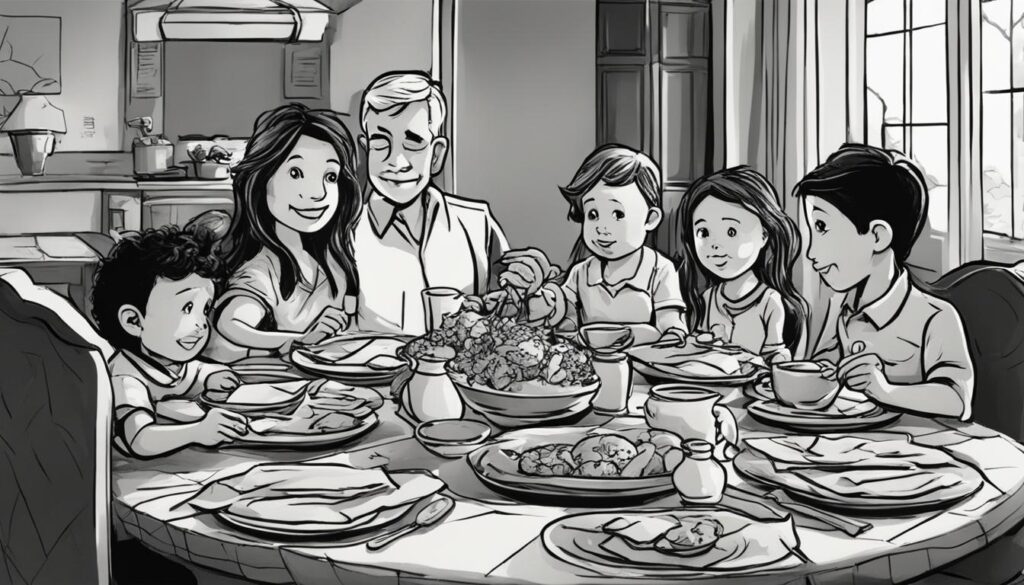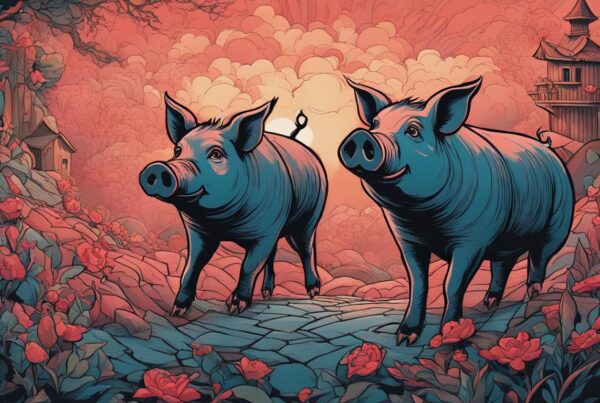Welcome to our book summary of All Families Are Psychotic by Douglas Coupland. This book is a gripping and thought-provoking story about the dysfunctional Bloom family. As they gather for a reunion on the occasion of the launch of one of their family members into space, old tensions and secrets come to light, forcing the family to confront their turbulent history and uncertain future. Throughout the novel, Coupland offers sharp insights into the complex dynamics of family relationships and the challenges of navigating the ups and downs of life. Join us as we delve deeper into the world of All Families Are Psychotic.
About the Author
Douglas Coupland is a Canadian novelist, artist, and designer born on December 30, 1961. Coupland is best known for his unique writing style, often blending satire, pop culture, and philosophical musings in his works.
Coupland’s first novel, “Generation X: Tales for an Accelerated Culture,” was published in 1991 and quickly gained popularity, earning him the title of “voice of a generation.” Since then, he has published numerous other books, including “Microserfs,” “Hey Nostradamus!,” and “JPod.”
Coupland’s background in visual arts and design is also evident in his writing, as he frequently incorporates graphic design elements and illustrations into his work. His diverse background and unique approach to storytelling have earned him a reputation as one of Canada’s most prominent and innovative cultural figures.
Setting and Characters
“All Families Are Psychotic” takes place in the bustling city of Orlando, Florida. The story is set in the year 2001, and the backdrop includes familiar landmarks, such as Disney World and Cape Canaveral. The contrasting tones of sunny vacation vibes and the looming shadow of tragedy set the stage for a captivating tale of family dysfunction and redemption.
The characters in “All Families Are Psychotic” are complex and intriguing, each with their own flaws and strengths. There is Janet Drummond, the matriarch of the family who has been diagnosed with AIDS. Her ex-husband, Ted Drummond, is a washed-up astronaut who tries to make amends for his past mistakes. Then there’s Wade, their son, who has a criminal record and tries to make a quick buck by smuggling drugs into space. Wade’s sister, Sarah, also has her own problems, including a self-destructive streak and a complicated love life. These characters and more are brought to life by Coupland’s in-depth characterizations and attention to detail.
“The characters in ‘All Families Are Psychotic’ are so realistic and dynamic that you’ll find yourself rooting for them even when they’re making questionable decisions.”
The strained relationships between the characters add another layer of depth to the story. The Drummond family is dysfunctional, to say the least, and their attempts to reconcile with one another are fraught with tension and suspicion. But as the plot unfolds, readers are taken on a journey of self-discovery and redemption that will leave a lasting impression.
Plot Summary
In “All Families Are Psychotic,” the dysfunctional Drummond family reunites in Florida following the impending launch of their daughter’s, Sarah, space mission for NASA. Each family member brings their unique set of problems and secrets to the reunion, resulting in a series of catastrophic events.
The matriarch of the family, Janet, is a recovering drug addict who is still in love with her ex-husband, Ted. Meanwhile, Ted, a pornographer, arrives at the reunion with his new wife and child in tow. Sarah, the astronaut, has contracted HIV from her boyfriend, and the family collectively navigates Sarah’s diagnosis and ongoing treatment.
Additionally, Wade, the son, is a drug dealer tasked with delivering a package to a dangerous individual while on the trip. As the family tries to support one another and fix their issues, they find themselves immersed in a dangerous situation that threatens to shatter their fragile relationships.
The plot takes several unexpected twists and turns, creating a gripping and enthralling narrative that keeps readers on the edge of their seats. “All Families Are Psychotic” is a poignant exploration of family dynamics and the underlying issues that threaten to tear them apart.
Themes and Motifs
As readers delve deeper into “All Families Are Psychotic,” they will encounter several prominent themes and motifs. One of the central themes of the book is the notion of family dysfunction. The family at the heart of the story is plagued by a range of issues, from substance abuse to criminal activity, highlighting the fragility of familial bonds.
Douglas Coupland also explores the concept of identity, particularly in relation to the characters’ sense of self and their place in the world. The protagonist, Wade, is struggling to come to terms with his past and move on from his mistakes, a theme that resonates with many readers.
The author also employs several motifs throughout the book, including music, the stars, and technology. These motifs serve to reinforce the central themes of the book and provide additional layers of meaning.

Writing Style and Narrative Techniques
In “All Families Are Psychotic,” Douglas Coupland showcases his characteristic writing style that blends humor, cynicism, and wit. Coupland’s prose is unique in that it captures the complex and often absurd realities of modern life with a keen eye for detail and a playful tone.
Coupland uses a variety of narrative techniques to engage readers and enhance the storytelling experience. One example is his use of multiple perspectives and shifting timelines, which allows readers to gain a more holistic understanding of the characters and their motivations.
Another notable technique is Coupland’s use of pop culture references and contemporary language, which gives the book a youthful and energetic feel. This approach also reinforces the idea that all families, regardless of their quirks and dysfunctions, are part of a larger cultural landscape.
“Coupland’s writing is witty, provocative, and deeply insightful. His unique voice and narrative approach make “All Families Are Psychotic” a standout work of fiction.”
Reception and Critical Acclaim
Since its release, “All Families Are Psychotic” has received significant critical acclaim and positive reception from readers and literary experts alike. The novel has been praised for its witty prose and unique characters, as well as its exploration of complex familial relationships and themes of mortality and redemption.
One notable review from the New York Times praised Coupland’s “sharp and funny” writing style and called “All Families Are Psychotic” a “smart, astute novel” that skillfully blends humor with emotionally resonant themes.
In addition to critical acclaim, the book has also been the recipient of several awards, including the Canadian Authors Association Award for Fiction and the Ethel Wilson Fiction Prize. These accolades are a testament to the lasting impact and cultural significance of “All Families Are Psychotic.”

Impact and Cultural Significance
“All Families Are Psychotic” has had a significant impact on literature and popular culture. Since its publication in 2001, the book has gained a widespread following, with readers drawn to its unique storyline and intriguing cast of characters.
The book’s cultural significance lies in its exploration of complex family dynamics, mental health, and relationships. Coupland’s writing style and narrative voice provide an unflinching portrayal of these themes, creating a thought-provoking and relatable work of fiction.
The book’s influence can be seen in contemporary literature, with many authors citing “All Families Are Psychotic” as a key inspiration in their work. It has also inspired other creative mediums, including film and television, with themes from the book appearing in popular movies and shows.
“[‘All Families Are Psychotic’] is a book I can’t stop reading and passing on to people I care for. It’s hilarious and stark, and it tells the hard, strange truth about families: that we don’t really get to choose them, but we still have to call them when the shit goes down.” – Elizabeth Gilbert
Overall, “All Families Are Psychotic” has left a lasting impact on readers and continues to be a relevant and insightful piece of literature in modern society.
Conclusion
In conclusion, “All Families Are Psychotic” by Douglas Coupland is a thought-provoking and engaging book that offers a unique perspective on family dynamics and the complexities of human relationships. Through his masterful storytelling and use of relatable characters, Coupland creates a world that readers can easily immerse themselves in.
As we have seen in this article, the book explores a range of themes and motifs, from the struggle for personal identity to the impact of technology on modern society. Coupland’s writing style and narrative techniques are also noteworthy, drawing readers in through his use of humor, wit, and poignant observations.
Furthermore, “All Families Are Psychotic” has received critical acclaim and has had a significant impact on literature and popular culture, cementing its place as a modern classic.
We highly recommend this book to anyone interested in exploring the complexities of human relationships and the intricacies of modern society. Thank you for joining us on this journey, and we hope you enjoy reading “All Families Are Psychotic” as much as we did.



